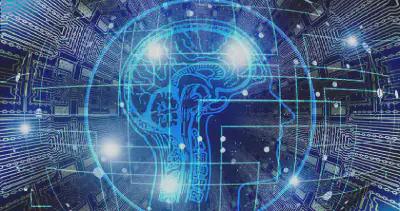Experts at NJIT's New AI Research Center to Study Theory and Applications

Written by: Evan Koblentz

Members of NJIT’s new Center for Artificial Intelligence Research will look to expand knowledge of the theory, data and applications of their field, which director Grace Wang said is quickly evolving from experimental to practical status.
The center will rely heavily on external grants, such as from the National Science Foundation which devoted $868 million to artificial intelligence research this year. Degree offerings will include an M.S. in artificial intelligence, most likely starting in fall 2022, building on existing courses such as CS-677, Deep Learning, which has been offered since 2019 as well as new courses including natural language processing.
“It is AI’s time,” now that hardware and networks are powerful enough to allow for software that computer scientists first imagined decades ago, explained Wang, a professor and associate dean for research in Ying Wu College of Computing. “It is an opportunity. You have to catch it or you are behind.”
Wang helped select faculty from her own college and from the College of Science and Liberal Arts, Martin Tuchman School of Management and Newark College of Engineering for the new center. Beside computer science experts, center members include experts in business, civil engineering, electrical engineering, mathematics and physics.
Artificial intelligence is quickly being applied beyond core computer science. There are applications in healthcare, geology, finance, physics and robotics, Wang said. Consumer applications that employ speech recognition and natural language processing such as Amazon Alexa, Google Assistant and Apple Siri rely on AI underneath, as do self-driving cars, she noted.
Traditional scientific research can take weeks, months or even years to get results. Wang said her favorite thing about AI is that she can change an experiment’s parameters and get the results almost immediately.
However, Wang and her doctoral student Ankan Dash both said the biggest challenge for artificial intelligence researchers is to fully understand why it works. Unlike traditional software where users enter their data, understand the algorithms and wait for the result, in artificial intelligence the users enter their data and their desired output, then train the models to learn how to produce it. Models can be very complicated and the results may not be obvious or have a meaningful explanation.
“I feel after five years we could have real explainable AI. There’s not a theoretical proof that this really works. There is some theoretical gap,” Wang said. “I hope in five years this can be mapped.”
“We kind of know what’s going on,” Dash joked. “The biggest problem in AI is helping people understand how models actually work. Most of the problems related to AI, it’s a black box. … It will be very nice if the research community focuses more on how the models actually work.”
Dash joined NJIT last year to study under Wang, returned to India while classes were online during the pandemic, and said he was pleased to learn about the new center upon returning to campus this year. “I’m very happy,” said Dash, who explores how to apply artificial intelligence to aerospace, financial technology and remote sensing. “I think there will be much more interdisciplinary research between various departments.”
The center will join NJIT’s Institute for Data Science, which already houses the Center for Big Data, Cybersecurity Research Center and Structural Analysis of Biomedical Ontologies Center.
“The AI research center is a great addition to the capabilities housed already in the Institute for Data Science,” director David Bader said. “Machine learning and AI are revolutionizing how we learn from the massive datasets in areas ranging from genomics and medicine to understanding climate and space weather. This new center promises to make foundational contributions to the field of AI.”
NJIT has a unique connection to the history of artificial intelligence dating back 60 years. Judea Pearl, who won the Turing Award in 2011 for his development of Bayesian networks — a cornerstone of modern AI — received an M.S. in electrical engineering at Newark College of Engineering in 1961.
https://news.njit.edu/experts-njits-new-ai-research-center-study-theory-and-applications